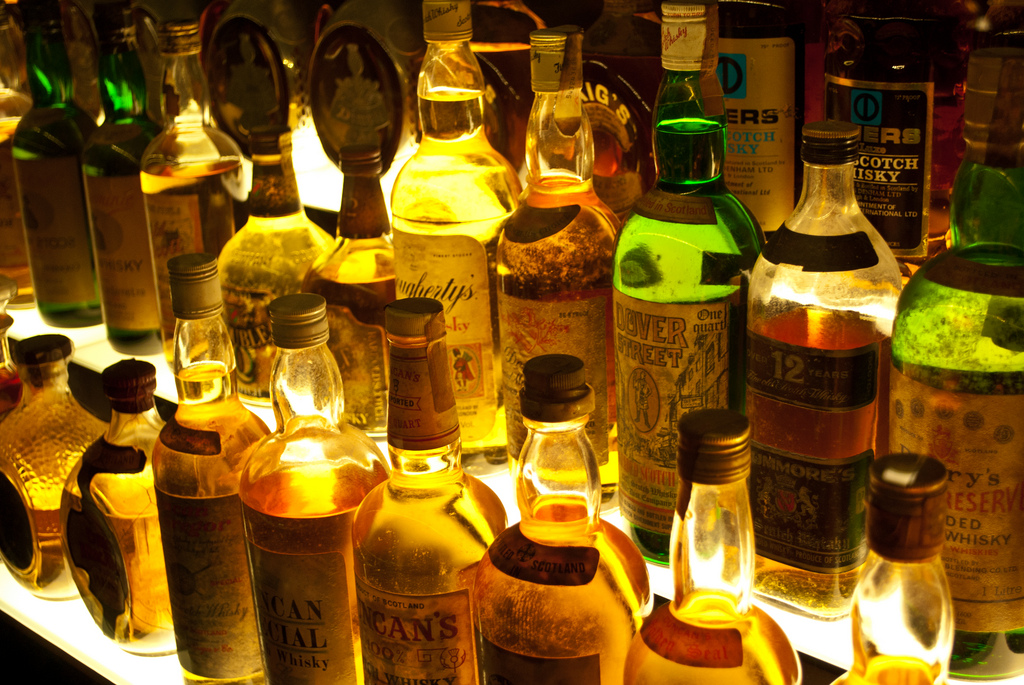Nosing the News: Diageo’s proposed changes to Scotch regulations
Whisky News
So there has been a lot of news and discussion of late surrounding Diageo’s proposed changes to the current Scotch whisky regulations.
The Wall Street Journal (WSJ) reported that the whisky giant is looking at “whether potential regulatory, technical, legal or other barriers are constraining” Scotch, and whether or not the current rules offer sufficient “scope for reform”.
The main proposed change would be to add a new blended malt category that would allow for different flavoured and low alcohol content expressions to be released under existing brands.
In case you’re still unsure of what this is all about, Scotch matured in tequila barrels or flavoured with the addition of fruit are the predominant examples that have been given.
Under the current regulations spirit must be matured for a minimum of 3 years in oak casks and only a small number of ingredients are allowed to be used, such as grain, water, and ‘plain caramel colouring’. They must also have a minimum ABV of 40%.
Obviously, maturing a spirit in ex-tequila casks for over 3 years would likely result in an overpowering flavour of tequila being imparted on the spirit, and that is certainly not what we want for our beloved Scotch.
What could these changes mean for Scotch Whisky?
For a start, we would surely see a whole lot of new flavour combinations, similar to the current situation with gin.
Flavoured whiskies, whether that be with tequila casks, different fruits, or anything else for that matter, would likely start to trend.
There are clearly some instances, such as tequila, where interesting flavour combinations and complex blends could be created, and many of them would likely be delicious.
The fear for many is that the market becomes saturated with flavoured Scotch and the traditional ways of making the spirit, to strict historical guidelines, would become a thing of the past.
But would master distillers, blenders, whisky critics and experts allow this to happen? Surely not.
Scotch whisky, and particularly blended whisky, has been created in the same way for hundreds of years now. Throughout this time, distilleries have spent a great deal of effort and money perfecting their skills and craft. We don’t think all of this hard work is about to be thrown out because some new regulations are introduced.
In an attempt to quell the nerves of the doubters, Diageo have been keen to make clear that they have “an unwavering commitment to the integrity, long-term success, history and tradition of the category.” They go on to state that they are simply “looking at ways to innovate to both protect and secure the future success of the category”.
This all sounds very well and good, but one can’t help but wonder where there are slightly more selfish reasons behind their proposed change.
SWA’s response
So far the SWA have responded publicly with just a single statement.
Their spokesperson said “Scotch whisky is a product renowned for its quality, craft and heritage. The regulations which govern the production of Scotch whisky are the solid foundation on which the industry’s success is built, generating over £4bn in exports to almost 200 market worldwide in 2016.”
While we are apprehensive to take too much from this, we can gather that their priority is protecting the heritage and history that has made Scotch whisky such an incredible global success story. This gives us some comfort.
Their mention of the whisky industries impressive £4bn in exports also seems to suggest that they think the industry is doing just great the way it is.
Whether they see these changes as the next step in growing the industry further is as yet unclear.
What do we make of all of this?
In concept, new regulations could allow the industry to target new markets.
Whisky cocktails have been on the rise in recent times and flavoured drams would likely see many more eclectic inventions. That could be interesting.
On the other hand, it would be a shame if the industries focus shifted drastically to creating blends within the proposed category.
While we’re pretty sure that their proposal would not result in the death of blended Scotch in its current form, it is conceivable that, if these new flavoured blends were to take off, distilleries would put more time into creating them, and time spent on that is time wasted on creating exciting blends (that we know and love) that fit with the current regulations.
Other possible avenues
An alternate suggestion is that brands could create flavoured spirit anyway and release it under their name but not as an official bottle of Scotch whisky.
Ballantine’s have already taken this step in the creation of their Brasil expression. Marketed as a “spirit drink”, it is a combination of Scotch whisky infused with Brazilian lime peel. So far, it has been met with a mixed reception from whisky fans and critics.
Releasing flavoured whisky in this way may be the best step in order to preserve the heritage and historic methods of creating scotch, while innovating at the same time.
Whether Diageo’s proposal gathers steam or not is yet to be seen and we’ll be keeping a close eye on this in the weeks and months to come. The company clearly has a lot of pulling power in the industry, given that they now own many sought after brands including Lagavulin and Johnnie Walker.
For the time being, we can only hope that they are as committed to preserving our history and heritage as they say they are.



